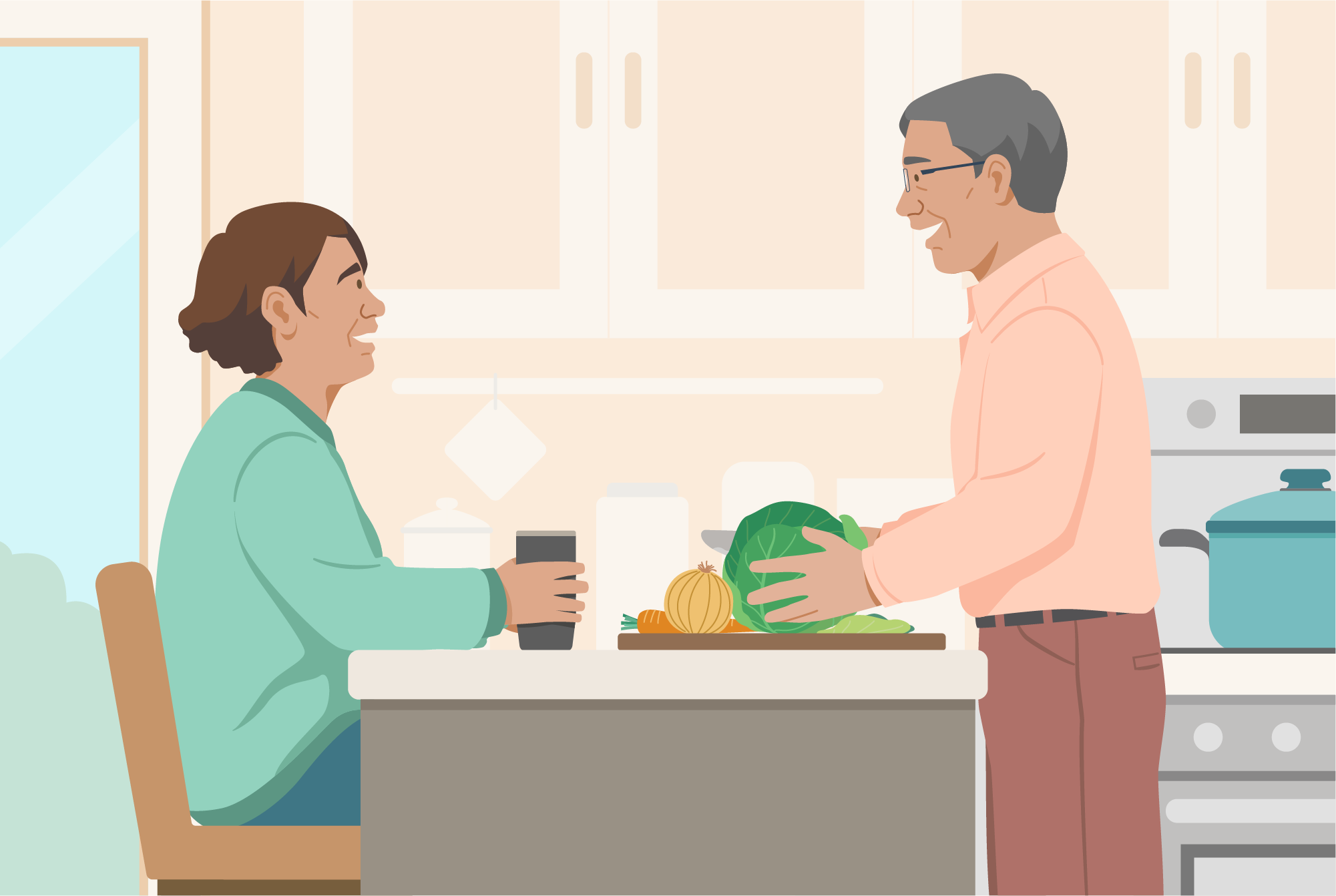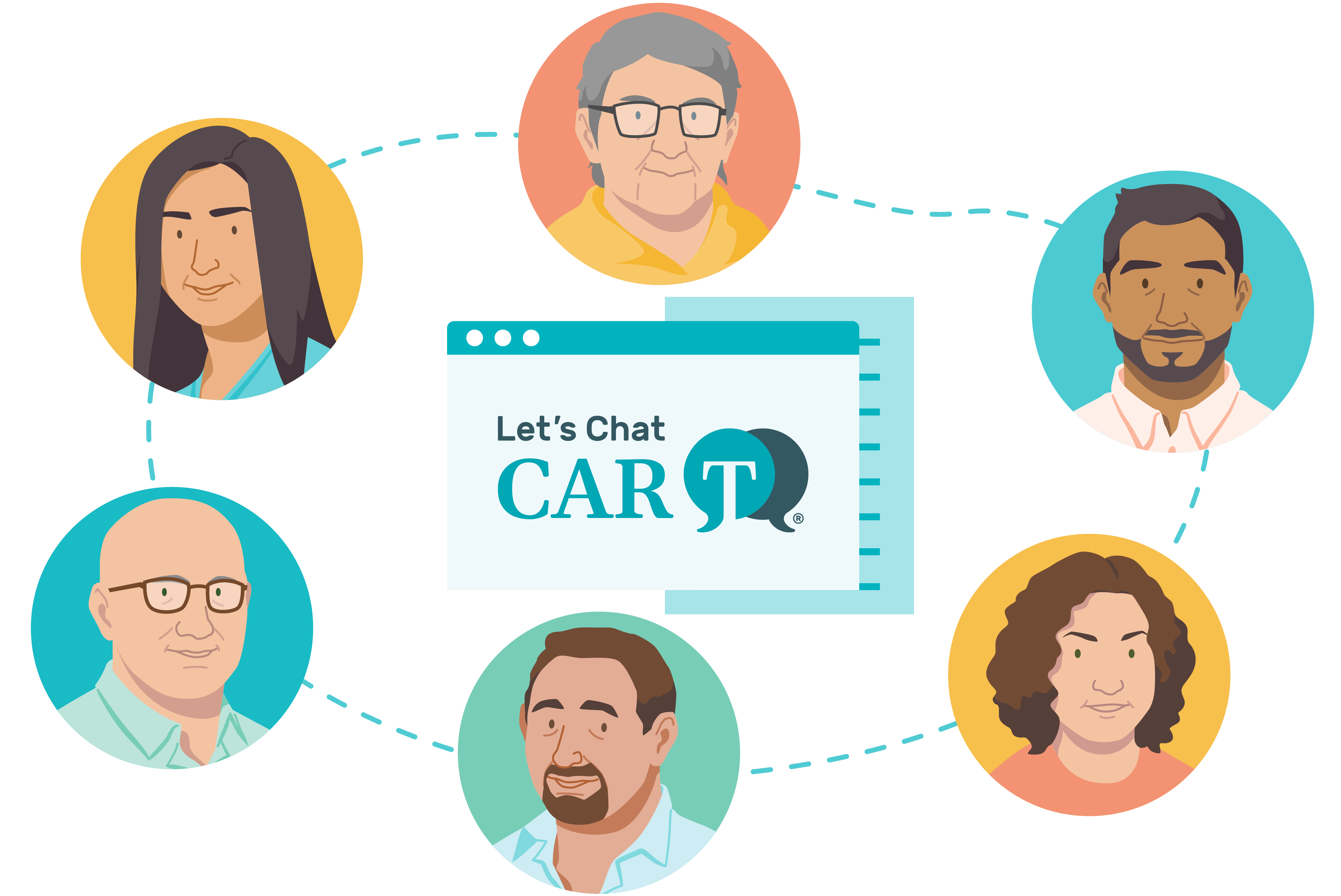A key role for caregivers is to watch out for side effects after the CAR T infusion, especially in between check-ins with the CAR T treatment team. Some side effects may be hard for patients to recognize, and they will need a caregiver 24 hours a day for 4 to 8 weeks after their CAR T infusion. Your CAR T treatment team will give you detailed instructions on what to look for and what to do. They will be monitoring for side effects as well, and managing them appropriately.
There are other possible caregiving duties, since CAR T patients often deal with fatigue. Patients cannot drive for 8 weeks after treatment, and some patients may require personal supportive care. Your CAR T treatment team will tell you more about what to expect and how you can help.
When preparing for CAR T, you can:
- plan ahead to ensure that you or other caregivers are available at the times that the patient needs someone
- ask or learn more about CAR T
- help get a referral to a CAR T medical center
- organize travel, meals, and a place to stay near the CAR T medical center (if you and the patient don't live nearby)
- coordinate with the CAR T treatment team to schedule appointments and tests
- help gather information needed by the CAR T medical center
- line up support for CAR T (such as financial support if needed)
- make a plan to have someone support you if there is any help that you need

After the CAR T infusion, you can:
- stay with the patient near a CAR T medical center for up to 4 weeks. You may be required to stay at the medical center where the patient received the infusion for part of this time
- watch out for symptoms of CAR T side effects—some side effects may be hard for the patient themselves to notice, and patients will need to be accompanied for 24 hours a day for a period of time
- continue helping the patient while their energy is low
- help with day-to-day tasks as needed (e.g., grocery shopping, preparing meals, tidying up)
- drive or arrange transportation—the patient should not drive for at least 8 weeks after infusion

You can also help with:
- day-to-day household tasks (groceries, cooking, cleaning, paying bills)
- personal care or hygiene if needed
- medication management
- asking questions and taking notes at health appointments
- speaking up and getting the best care for the patient
- getting a second opinion
- helping to communicate with the CAR T treatment team during any part of the process
- BMT InfoNet: CAR T-cell Therapy: The Role of the Caregiver
- Cancer Support Community: CAR T Patient & Caregiver Guide , CAR T Caregivers
- Lymphoma Research Foundation: Care Partners
- National Comprehensive Cancer Network (NCCN): Patient Resources—click on ‘Resources for Patients & Caregivers’




![[Tap to play] Thumbnail for a video titled: Caregiver stories: My CAR T experience.](/-/media/project/letschatcart/letschatcart_com/images/caregiver-stories-my-car-t-experience-video-button.png)
![[Tap to play] Thumbnail for a video titled: Caregiver stories: Taking care of yourself.](/-/media/project/letschatcart/letschatcart_com/images/caregiver-stories-taking-care-of-yourself-video-button.png)


